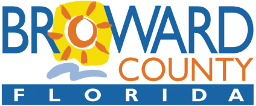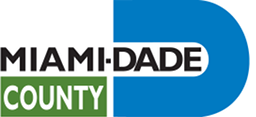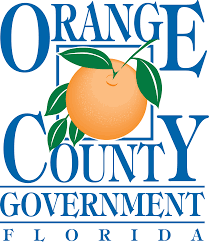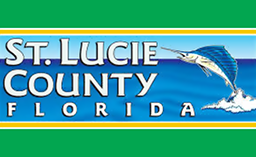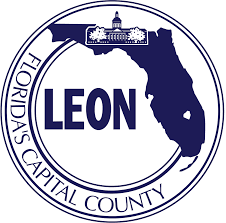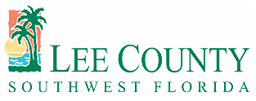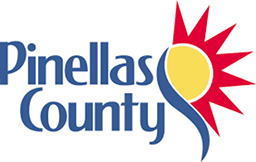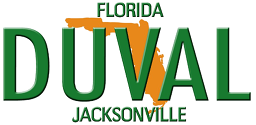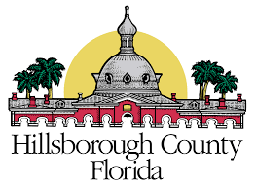Florida Rehabs
Alcohol and Drug Rehabs in Florida
Alcoholism and Addiction is not a life sentence.
There is hope, recovery is possible.
If you’re a loved one or seeking help we look forward to guiding you to a place to begin. We’re here to help.

When it comes to seeking professional help for addiction, drug and alcohol rehabs in Florida have become a beacon of hope and a trusted destination for individuals in search of addiction treatment. Some in the serene coastal settings, others inland – some state-of-the-art facilities and others home like, most offer comprehensive mental health and substance abuse treatment programs.
Each drug and alcohol rehab center offers a unique environment that fosters transformation and empowers individuals to reclaim their lives. Florida’s reputation as a destination for superior behavioral health treatment and addiction treatment stems from its commitment to excellence in offering opportunities for those suffering from alcohol and drug addiction to find the right treatment center for their needs.
Finding the Right Drug and Alcohol Rehab
To prioritize evidence-based therapies and practices, ensure that individuals receive the highest quality addiction treatment and care that is rooted in scientific research and proven methodologies, SAMHSA (Substance Abuse and Mental Health Services Administration) actually created TIPS that cover topics facilities and clinicians should follow.
From treating persons with co-occurring disorders (substance abuse and mental health issues) to inpatient treatment detoxification, family therapy, medication assisted treatment and trauma informed care – the Substance Abuse and Mental Health Services Administration not only details comprehensive addiction treatment protocols, but offers information on where to find substance abuse, drug and alcohol rehab and, and addiction treatment that accepts private health insurance, state insurance, and sliding scale facilities.
Addiction Treatment Services in Florida
Addiction treatment services in Florida provide a comprehensive range of services tailored to meet each individual’s unique needs. One of the key advantages of seeking addiction treatment centers in Florida is their ability to offer a wide variety of treatment options.
Whether someone is seeking residential treatment, outpatient services, or specialized programs for co-occurring disorders, these types of drug rehab centers are available and have the substance abuse expertise and resources to address a diverse range of addiction issues. This flexibility allows individuals to find the right level of care in the right addiction treatment program that suits their specific circumstances, ensuring the best possible chance for long-term recovery.
Florida Drug Rehabs: Substance Use Disorder
Addiction medicine doctors are known for their commitment to personalized care. Substance use disorders are a broad diagnosis and as each patient is assessed and information is gathered on their history of drug use, the amount of alcohol consumed, and family history of addiction and mental health issues. Once the assessment is finished the addiction medicine doctor can add specifics like alcohol use disorder, opioid use disorder, and the like. Together with the patient he addiction treatment team can narrow to a more specific diagnosis if needed and begin to create a treatment plan.
Dual diagnosis treatment centers will accept someone with a substance use disorder and a mental health disorders.
Through individualized treatment plans, group therapy sessions, and support groups, both inpatient treatment and outpatient rehab centers work with patients to begin the treatment process. If drug withdrawal is a concern, the Florida rehab center chosen will need to offer detoxification and or medication assisted treatment.
Addiction Recovery
All treatment services for substance abuse happen in a a safe and nurturing environment where individuals can explore the underlying causes of their addiction, develop coping strategies, and build a strong foundation for lasting sobriety.
All alcohol detox centers, alcohol rehab centers, and drug rehab treatment centers in the state of FLorida must be licensed by the Florida Department of Children and Families.

What Are the Different Levels of Care for Alcohol Addiction and Substance Abuse Treatment?
Florida is known for its numerous variety of services and levels of care offered at an addiction treatment center. Rehab centers in Florida cater to individuals seeking all levels of care for drug and alcohol addiction. With so many addiction treatment programs available, it can be overwhelming to choose the right level of care.
Here, we explore the different levels of drug and alcohol rehabs to help you make an informed decision.
Inpatient and Residential Treatment Centers
One of the most common types of rehabs in Florida is inpatient treatment or residential treatment centers. Both an inpatient rehab and residential treatment center provide a structured environment where individuals live onsite for a specified period of time, usually ranging from 30 to 90 days. Inpatient treatment programs often referred to as “inpatient rehab” offer 24/7 care and support, ensuring individuals have access to medical professionals when needed.
A residential treatment center can follow the same protocols as inpatient rehab, however, often the difference is the setting. One being in a hospital setting and the other in a homelike environment or campus.
Partial Hospitalization Program (PHP)
A partial hospitalization program (PHP) are a middle ground between inpatient and outpatient. Individuals attend the program during the day and return home in the evenings. PHPs offer a structured environment with intensive therapy and medical support, making them suitable for individuals who addiction treatment and sometimes mental health services but don’t need 24/7 care.
Intensive Outpatient Program (IOP)
Intensive outpatient program (IOP) are another option for individuals who require more support than traditional outpatient. IOPs typically involve several hours of therapy and counseling sessions per week. This type of program allows individuals to continue their daily routines while receiving the necessary treatment.
Outpatient Treatment Center
Another type of rehab is outpatient treatment. This option allows individuals to receive treatment while living at home. Outpatient programs vary in intensity, with some requiring daily attendance while others only require a few hours per week.
This flexibility is ideal for individuals who cannot commit to a residential program due to work or family obligations.
What Are the Costs Associated with Alcohol and Drug Rehab?

Florida is renowned for its numerous rehab centers that cater to individuals seeking drug and alcohol treatment. People fly from all over the United States and abroad to go to a treatment center in Florida simply because it is so beautiful. A rehab in Florida can get to the coast quickly if it is not right on the beach. However, one important aspect that potential patients often consider is the cost associated with these facilities. Understanding the financial aspect for a rehab in Florida is crucial for those seeking treatment options.
A rehab in Florida when it comes to fees is similar to any drug rehab in America. There are four types of financial treatment options to consider when choosing the best program for yourself or a loved one.
Private Pay
An alcohol or drug rehab that is private pay only accepts private payment. At times they many accept insurance IF it is out of network. However, this is up to each addiction treatment center.
Private Health Insurance
Private insurance for a drug or alcohol rehabilitation center is based on the policy. A rehab in Florida can advertise they accept insurance, however, they are not in network with the insurance company.
Private insurance is broken down into five main categories:
One - In-Network Insurance
A drug and alcohol rehab that is in network has essentially partnered with your insurance for an agreed upon rate for substance abuse treatment and mental health services. Administration from the treatment programs has actually contracted to provide services for a pre-agreed upon rate.
You will be responsible for your deductible, co-pay, and out of pocket yearly max.
Two - PPO (Preferred Provider Organization) Insurance
PPO insurance works the same as in-network insurance for a rehab in Florida that has contracted with your Insurance company. However, if you choose a program that is out-of-network, and your insurance company approves your stay, you can go to an inpatient rehab or outpatient rehab of your choice knowing that your insurance company will only pay according to your plan.
This often leaves a higher co-pay as most insurance companies want their insured to go to preferred in-network addiction treatment centers.
Three - Self Insured
Self insured insurance often contracts like an in-network insurance policy, but can also approve an out of network treatment facility. Self insured plans like Unions support substance abuse treatment programs.
Four - Government Insurance
Government insurance is medi-care or medi-caid. There are addiction treatment programs that accept one or both types of government insurance.
Five - Non-Profit and Sliding Scale
Rehabs in Florida that are non profit and sliding scale help those who have no insurance at all and often no funds. Many of these programs have grants or are subsidized by the county or state.
The Marchman Act: Understanding How to Mandate Help for Someone Struggling with Substance Abuse
The Marchman Act, officially known as the Florida Marchman Alcohol and Other Drug Services Act, is a law in the state of Florida that provides a legal framework for involuntary assessment, stabilization, and treatment for individuals struggling with substance abuse. The Act was named after its primary sponsor, Representative Frank Marchman, and was enacted in 1993 to address the challenges of addiction and the impact it has on individuals, families, and communities.
The Marchman Act enables concerned family members, friends, or even professionals to petition the court to intervene when someone’s serious substance use or abuse poses a significant danger to themselves or others. This law applies to both alcohol and substance use-related issues and aims to ensure that individuals receive the necessary assessment and treatment for their substance abuse problems.
Under the Marchman Act, the following key provisions can be initiated:
Involuntary Assessment
The Act allows for an individual to be involuntarily assessed by a licensed service provider if there is evidence of substance abuse impairment. This assessment helps determine whether the person meets the criteria for further treatment.
Involuntary Stabilization
If the assessment determines that the person meets the criteria for stabilization due to the potential for harm or loss of life, the court can order a temporary period of involuntary stabilization. This typically lasts up to five days but can be extended for an additional five days under specific circumstances.
Involuntary Treatment
Following the stabilization period, the court may order involuntary treatment if it is deemed necessary for the person’s well-being and recovery. Involuntary treatment programs can include residential or outpatient programs.
The Marchman Act aims to balance the need to provide individuals with the help they require while respecting their rights. Throughout the process, individuals are provided with due process protections, including the right to legal representation, the right to present evidence, and the right to a hearing before a judge.
It is important to note that the Marchman Act should be seen as a last resort when other attempts to address substance abuse have been unsuccessful or when there is an immediate danger to the person or others. The Act is designed to protect individuals and offer them an opportunity to receive appropriate treatment and support for their substance abuse issues.
The Marchman Act serves as an essential tool in Florida’s efforts to address substance abuse and provide individuals with the necessary assistance to overcome addiction. It supports the overall goal of promoting recovery and improving the well-being of individuals and communities affected by substance abuse.

Aftercare Support is Available After Completing a Drug Rehab
After completing a Florida rehab program, individuals often wonder what kind of aftercare support is available to help them maintain their sobriety and continue their recovery journey. Fortunately, there are several options and resources available in Florida to provide ongoing support and guidance for those who have completed a rehab program.
Outpatient Rehab
One common form of aftercare support is outpatient treatment. This type of program allows individuals to receive therapy and counseling on a part-time basis while still living at home or in a sober living environment. Outpatient treatment provides a structured and supportive environment where individuals can continue to work on their recovery goals while gradually transitioning back into their everyday lives.
Sober Living Homes
Another option for aftercare support is sober living homes. These are residential facilities that offer a safe and supportive environment for individuals in recovery. Sober living homes often have rules and guidelines that residents must follow, such as attending support group meetings and maintaining sobriety. Living in a sober living home can provide a sense of community and accountability, which can be crucial in the early stages of recovery.
Support Groups
Support groups, such as Alcoholics Anonymous (AA) or Narcotics Anonymous (NA), are also widely available in Florida. These groups offer a supportive network of individuals who have gone through similar experiences and can provide guidance and encouragement. Attending regular support group meetings can help individuals stay connected and motivated in their recovery journey.
Aftercare Planning and Relapse Prevention
A Florida rehab center in addition to the above options may offer aftercare planning and relapse prevention as part of their treatment services. Aftercare planning is tailored to each individual’s needs and help develop strategies for relapse prevention and how to maintain their sobriety long-term.
This Website is all about Rehab Centers in Florida
This website is to help guide anyone living in Florida that is facing their own drug abuse, alcohol abuse, or mental health issues find the right help they need. We know that the rehab centers in Florida are available for those seeking help voluntarily or involuntary.
Please if you are a loved has hit a bottom and is ready for help, know you can find it in Florida rehabs.

